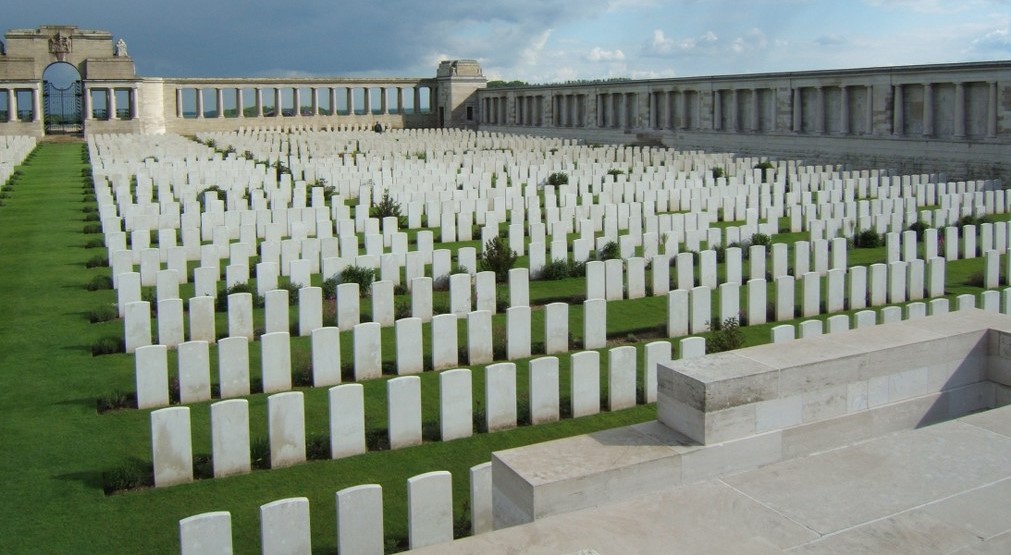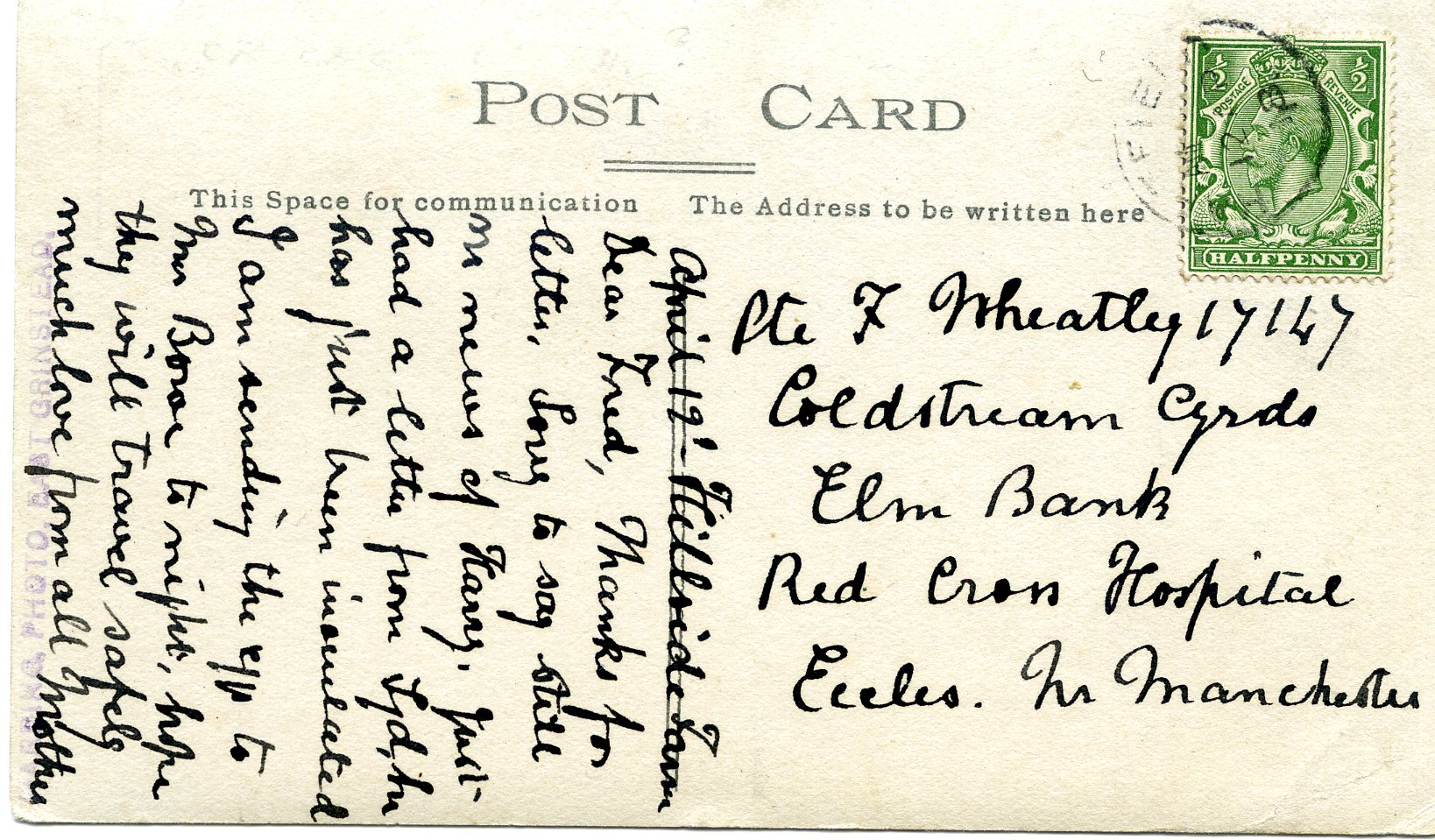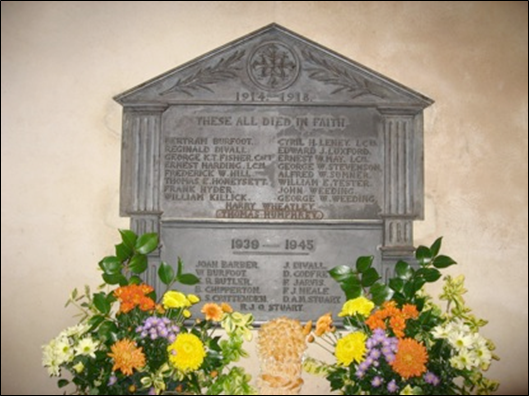HARRY WHEATLEY
Private, 11406, D Squadron, 5th (Royal Irish) Lancers
Killed in Action on the Somme, 26 March 1918, aged 23
Remembered with honour on the Pozières Memorial on the Somme

Pozières Memorial, Somme
Click to enlarge
Born in 1895, Harry Wheatley was the son of Joseph Wheatley, a farmer, and Ellen Eliza Wheatley, of Hillside Farm, Coleman's Hatch.
At the time of the 1911 census Harry was 16, his occupation listed as a "son working on the farm".
Harry was the brother of Alice Wheatley, whose husband George Weeding was killed during the Great War in May 1917 in an action linked to the Battle of Arras. Alice died in 1974 aged 85. She does not appear to have remarried.
Harry also had another sister, Ellen, and two brothers. His younger brother, Sydney, was born in 1900 and died aged 82 in 1982. His elder brother, Frederick, born in 1893, is listed in the 1911 census as a son working on the farm. He enlisted on 5 November 1915 and served throughout the First World War on the Western Front with the Coldstream Guards. He had his left upper arm amputated and was awarded the Silver War Badge. He was discharged from the service on 30 January 1919. He died aged 80 in 1973.
Harry Wheatley spent most of his First World War career on the Western Front. A private with the D Squadron of the 5th (Royal Irish) Lancers, he was reported missing near St. Quentin in March 1918 and later listed as killed in action on 26 March 1918, at the age of 23. Fred was sent the postcard pictured below from his mother while he was recuperating in the Elm Bank Red Cross Hospital in Eccles, near Manchester, in April 1918. In the postcard his mother notes that Harry is still missing; tragically, he was already dead.

Postcard to Fred Wheatley from his mother,
mentioning that there was still no news about Harry
Click to enlarge message
The Battle of St. Quentin was part of Operation Michael. Launched in the early hours of 21 March 1918 Operation Michael was the first attack of the German Spring Offensive. The German bombardment began at 4.40am. It lasted only five hours, but was one of the heaviest artillery bombardments in history with more than 3.5 million shells fired. By the end of the day, the British were fighting a desperate battle of survival in their rearmost defensive positions. British casualties numbered 38,500, including almost 21,000 British soldiers taken prisoner.
The first day of Operation Michael remains the second worst day in British military history, surpassed only by 1 July 1916, the first day of the Battle of the Somme.
The offensive continued until 5 April, by which time the German Army had taken more ground on the Western Front than the Allies had managed since 1914. In 16 days they had captured some 1,200 square miles, compared to 125 square miles taken by the British in 141 days during the Battle of the Somme in 1916. Tens of thousands of British soldiers had been taken captive and in total the British and French suffered over 250,000 casualties. However, success had come at terrible cost and almost 240,000 German soldiers were wounded, captured or dead, soldiers the Germans could not replace.
R.C. Sherriff's play and novel of the same name, Journey's End, is set in the trenches near Saint-Quentin, in March 1918.
Harry Wheatley left £22 12s. 7d. to his father. This included a War Tax gratuity of £12 10s.

The memorial plaque in
Holy Trinity Church, Coleman's Hatch
Click to enlarge
He is remembered with honour on the Pozières Memorial on the Somme and commemorated by the war memorial in Hartfield and by the memorial plaque at Holy Trinity Church, Coleman's Hatch.
Carol O'Driscoll
First published 26 April 2014
Last updated 17 November 2020
Acknowledgement
With gratitude to Roger Barton, great nephew of George and John Weeding, for supplying the image of the postcard sent to Frederick Wheatley.

